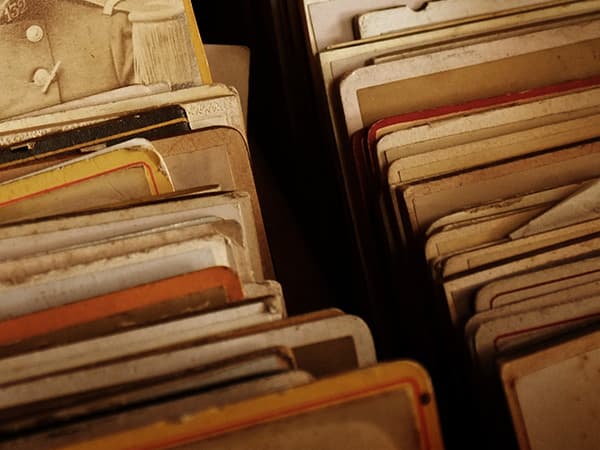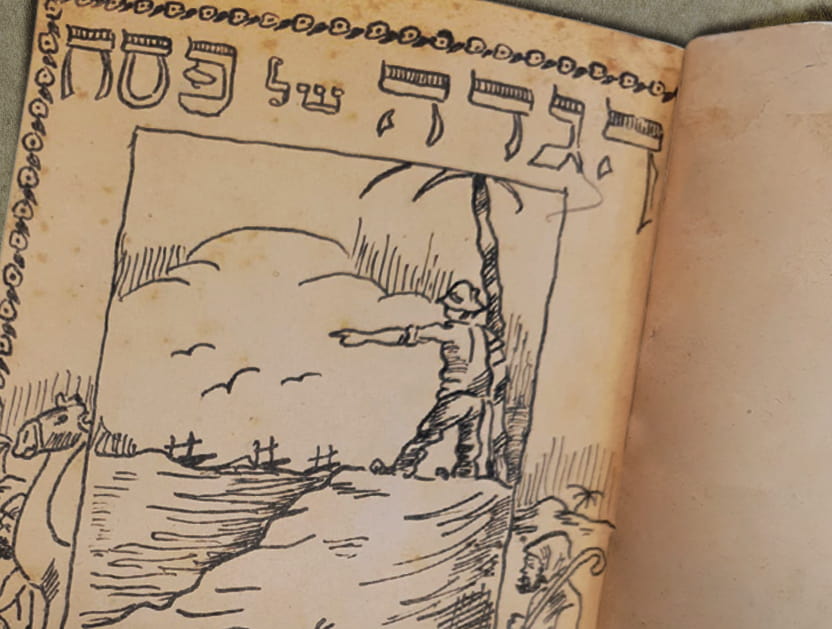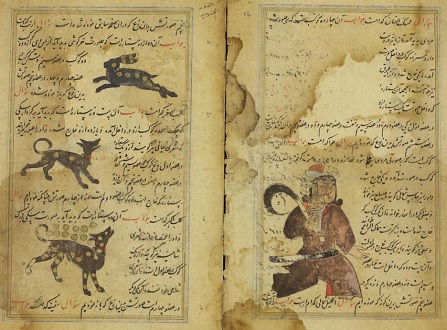בעידן שלפני מלחמת העולם השנייה קהילת יהודי סלוניקי הייתה הקהילה הגדולה ביותר ביוון. ב-1873 הקים ארגון "אליאנס" (כל ישראל חברים) בית ספר בסלוניקי, ובתי ספר יהודיים נוספים המקנים לתלמידיהם חינוך מודרני אירופאי הוקמו בעיר בסוף המאה ה-19. היהודים היו גורם דומיננטי בחיי המסחר בסלוניקי, ועסקו בכל המקצועות האפשריים. הקהילה היהודית ייסדה מוסדות צדקה שונים ויצרה מערכת רווחה משגשגת (בתי יתומים, בית החולים ע"ש הברונית הירש, בית חולים לחולי נפש, בית אבות שאול מודיאנו, ארגון "ביקור חולים" ועוד). בסלוניקי היו יותר משלושים בתי כנסת, בית ספר "תלמוד תורה הגדול," ובתי ספר קהילתיים רבים אחרים. ב-1908, לאחר מהפכת "הטורקים הצעירים", יהודים רבים הצטרפו לכוחותיהם, אולם רבים אחרים היגרו לארצות הברית בעקבות גיוס אוכלוסייה לא-מוסלמית לצבא הטורקי. בסלוניקי הוקם הארגון הסוציאליסטי "הפדרציה" וקמו קבוצות ציוניות ("בני ציון", "קדימה", "מזרחי" ועוד). לאחר השתלטות היוונים על העיר ב-1912 החלה הממשלה היוונית ליישם מדיניות של "הלניזציה", שפגעה בחיי הקהילה היהודית. יהודים היגרו לפריס וחלקם עלו לא"י. ב-1941, לאחר פלישת הנאצים, הגרמנים עצרו את ההנהגה היהודית, וב-1943 גירשו והשמידו את מרבית יהודי סלוניקי. האוסף כולל מסמכים משנות ה-80 של המאה ה-19, בעיקר החל משנת 1917 ועד 1941: חומרים על מצבם המשפטי של יהודי סלוניקי ועל יחסי היהודים עם השלטונות; מסמכים הקשורים לניהול חיי הקהילה היהודית והתכתבות של מוסדות הקהילה; חומרים על מוסדות הדת וחיים יהודיים דתיים; מסמכים על אודות החינוך; נתונים אישיים הקשורים בתושבי העיר היהודים; חומרים על חיי התרבות היהודית, מערכת הצדקה והרווחה; מסמכים בדבר פעילותם הכלכלית של היהודים, המיסוי והמצב הכלכלי של הקהילה; חומרים בנושא נדל"ן ובניה. האוסף מכיל גם חומרים על ארגונים ציוניים ואחרים, מסמכים הקשורים בתולדות משפחות יהודיות אחדות, וניירות משנת 1941 הקשורים למשטר הנאצי בסלוניקי --
Saloniki - Files of the Jewish Communities and Organisations
להגדלת הטקסט להקטנת הטקסט
| כותר |
Saloniki - Files of the Jewish Communities and Organisations. |
|---|---|
| יוצרים נוספים |
Ben-Zion Meir Hai,Uziel 1880-1953 Allatini family Israēlitikē Koinotēs Thessalonikēs |
| הערות |
Additional part of the Thesalonika Jewish community archive is available at the Jewish community. Certain parts were looted by the Germans, and then seized by the Red Army. Those parts are kept today mostly in the Center for the Preservation of Historical Documentary Collections "Osoby", Moscow, and in Prague, while additional part found its way to YIVO, New York. A copy of the various parts of the community archives can be found in the USHMM. |
| מתוך |
Saloniki - Jewish Community |
| רמת התיאור |
Fonds Record |
| תקציר ביוגרפי |
Salonika (“Jerusalem of the Balkans”) had the largest Jewish community in Greece and was a center of Jewish learning in the late 19th century and the beginning of the 20th century. In the second half of the 19th century “Westernization” had reached Salonika, and in 1873, the "Alliance Israelite Universelle" established a school in the city. Another two schools following Western standards were established by the prominent local Salonika’ Allatini family. In 1900, there were approximately 80,000 Jews in Salonika (out of a total population of 173,000). They were a dominant force in commercial life and were engaged in all kinds of handicrafts and professions. In 1905 Salonica possesses thirty-seven synagogues, mostly Sephardi, and a flourishing welfare Jewish system was created to provide medical assistance and medicine to the poor, dowries for orphanages, and pecuniary aid to families impoverished by illness, death, etc. (Allatini and Mair Aboave orphanages, the Baroness de Hirsch Hospital, Mental Asylum, Saoul Modiano Old People's Home, Bikour Holim Health Organization, Ẓeda-ḳah we-Ḥesed, Ozer Dallim, etc). The security and prosperity enjoyed by the Jews under the first Turkish rulers brought about an active intellectual movement. In 1908, after the revolution of "Young Turks", many Jews joined their forces, but many others emigrated to the United States following mobilization of non-Muslims into the Turkish army. The socialist organization "Federation" and Zionist groups (Bene Sion, Kadimah, Misrahi, etc.) were active in the city. The Young Turks' revolution marked a new "golden" era for the Jews of Salonika, and the Jewish community published over 30 newspapers. In 1912, the Greek army entered the city and King George declared that all the minorities were to have the same rights as the Greek population. However, the Greek government implemented a policy of Hellenization which harmed the inner life of the Jewish community. In 1917, a fire destroyed the city, including the center where most of the Jews lived. Many of the Jews emigrated to Paris and some went to Eretz Israel. On the eve of World War II, 55,250 Jews lived in Salonika. In 1941, after the Nazi invasion, Germans arrested the Jewish leadership. In 1943 the Nazis deported and exterminated most of the Jewish population. |
| היסטורית בעלים |
מרבית ארכיון הקהילה היהודית נשרף בדליקה הגדולה של שנת 1917. ארכיון הקהילה הוחרם על ידי הגרמנים במהלך מלחמת העולם השנייה. חלק ממנו הושב לקהילה אחרי המלחמה (כולל החלק שנמסר לארכיון המרכזי לתולדות העם היהודי), בעוד חלק אחר נתפס על ידי הסובייטים, והוא נמצא כיום במוסקבה, וחלקו הקטן בפראג. |
| הערת שפה |
Greek Ladino French Italian Hebrew Turkish German English Serbian Polish Esperanto |
| מספר מערכת |
990043224410205171 |
| קישורים |
פרטים על מיקום החומר/Location&access |
-
-
-
-
-
-
-
-
-
-
-
-
-
-
- הצג את 10 הפריטים הבאים מתוך 78
- הצג הכל
-
-
-
-
-
-
-
תנאי השימוש:
לכל תיק בארכיון נקבעו תנאי השימוש המתאימים
תנאי השימוש מופיעים בדף התיק הארכיוני באתר הספרייה הלאומית.
למידע נוסף על שירות בירור מצב זכויות היוצרים ותנאי השימוש בפריטים מאוספי הספרייה לחצו כאן.
תצוגת MARC
תגיות
יודעים עוד על הפריט? זיהיתם טעות?

 כניסה עם גוגל
כניסה עם גוגל
 כניסה עם פייסבוק
כניסה עם פייסבוק



